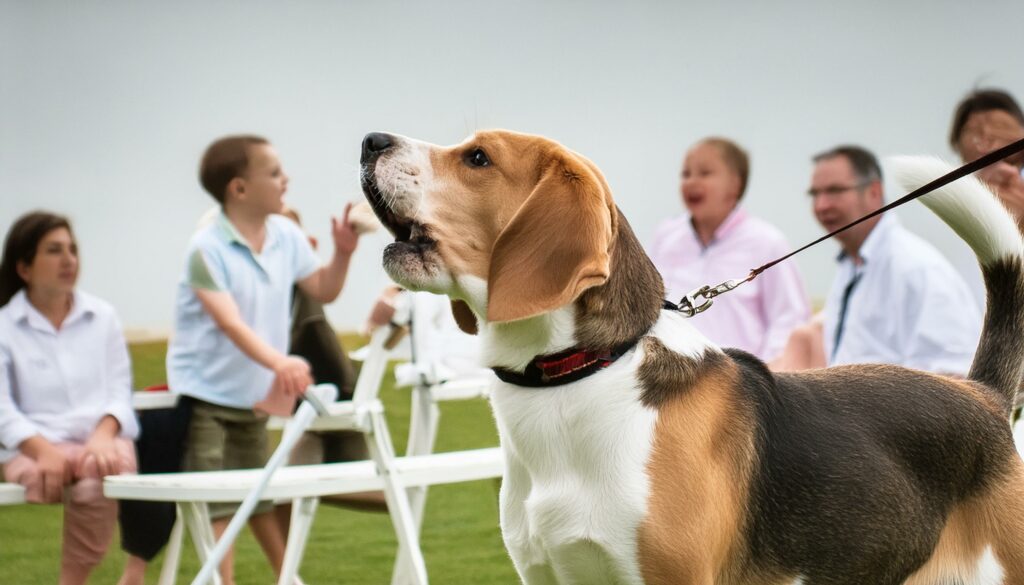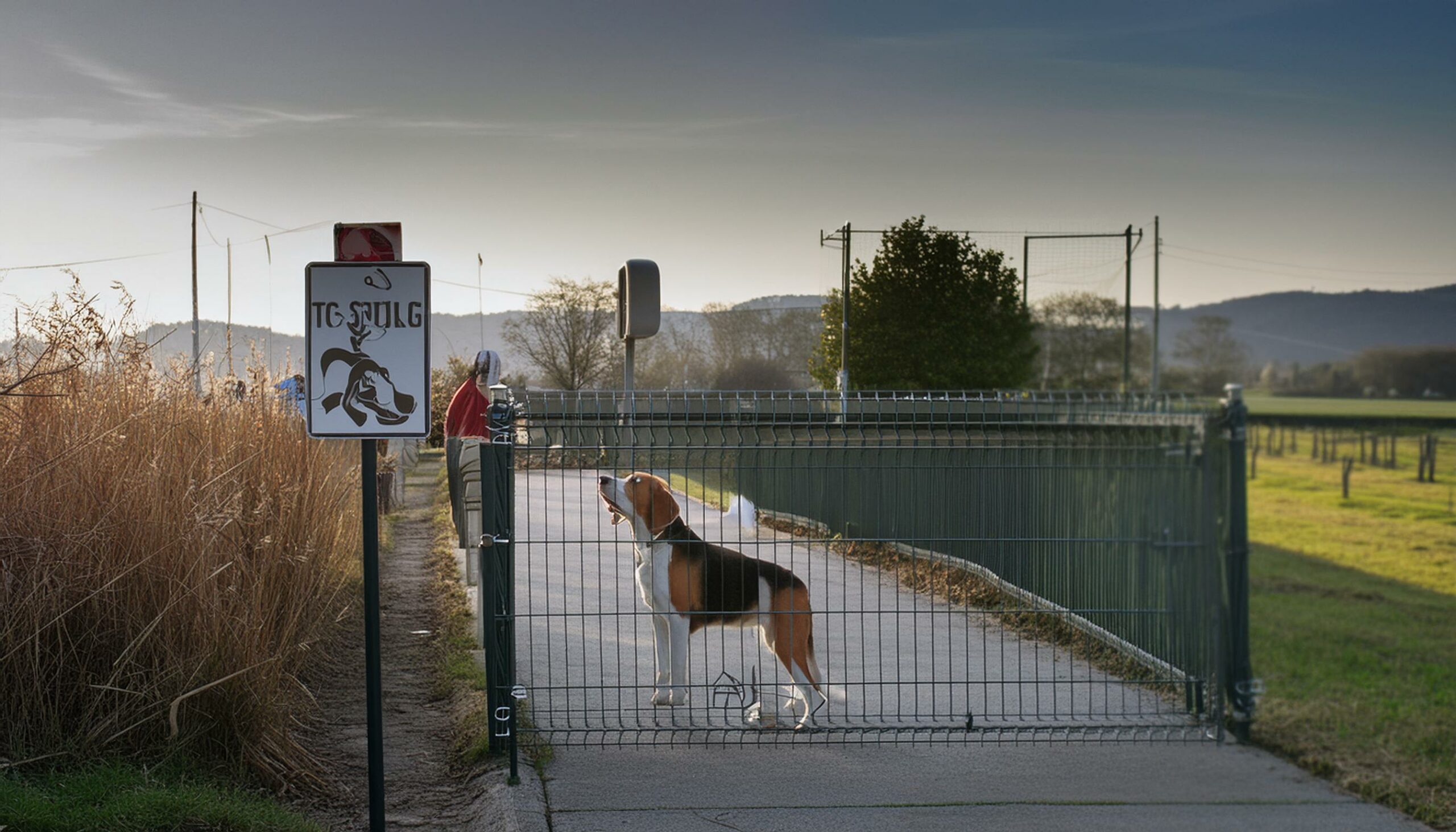Beagles, with their endearing personalities and expressive eyes, often win over the hearts of dog lovers. However, their melodious howls can sometimes be a cause of concern for pet owners. Is it possible to curb a Beagle’s howling habits? Let’s delve into the world of Beagle behavior to find out.
Understanding Beagle Howling
Natural Instincts
Beagles belong to the hound family, bred for their exceptional hunting abilities and acute sense of smell. Howling is deeply ingrained in their nature as a means of communication. In the wild, Beagles use howling to communicate with their pack members, signaling their location or alerting others to potential prey.
Communication Method
Howling serves as a form of communication for Beagles in domestic settings as well. They may howl to express various emotions, including excitement, anxiety, or loneliness. It’s their way of reaching out and seeking companionship or attention from their human family members.
Response to Stimuli
Beagles are highly sensitive dogs, easily influenced by their surroundings. Common triggers for howling include loud noises, such as sirens or music, the presence of other dogs, or being left alone for extended periods. Howling can be their response to these stimuli, a way of expressing their feelings or seeking comfort.
Reasons Beagles Howl
Separation Anxiety
Beagles are social animals that form strong bonds with their human companions. When left alone for extended periods, they may experience separation anxiety, leading to excessive howling. Howling becomes their way of expressing distress and seeking reassurance that their pack members are nearby.
Boredom
Like humans, Beagles can become bored when they lack mental or physical stimulation. Howling may be a result of pent-up energy or frustration from being under-stimulated. Providing engaging activities and interactive toys can help alleviate boredom and reduce howling behavior.
Attention-Seeking Behavior
Beagles are known for their playful and sometimes mischievous nature. Excessive howling may be their way of seeking attention or affection from their owners. It’s essential to differentiate between genuine distress and attention-seeking behavior when addressing their howling habits.
Medical Issues
In some cases, excessive howling in Beagles could be a sign of underlying medical issues. Pain, discomfort, or cognitive decline may manifest through increased vocalization. If your Beagle’s howling habits suddenly change or intensify, it’s crucial to consult with a veterinarian to rule out any health concerns.
Training Techniques to Stop Beagle Howling

Positive Reinforcement
Positive reinforcement training techniques involve rewarding desired behaviors with treats, praise, or affection. When your Beagle remains calm and quiet, praise them and offer a reward to reinforce the behavior. Consistency is key to effectively using positive reinforcement to reduce howling.
Providing Mental Stimulation
Beagles are intelligent dogs that thrive on mental stimulation. Engage their minds with puzzle toys, interactive games, or training sessions to keep them mentally stimulated and less likely to resort to excessive howling out of boredom.
Consistent Exercise Routine
Regular exercise is essential for Beagles to maintain their physical health and mental well-being. Ensure they receive daily walks, playtime, or other forms of physical activity to expend energy and prevent boredom-induced howling.
Avoiding Triggers
Identify and minimize triggers that may prompt your Beagle to howl excessively. Whether it’s loud noises, being left alone, or certain environmental factors, reducing exposure to these triggers can help curb howling behavior.
Creating a Comfortable Environment
Proper Shelter and Bedding
Provide your Beagle with a comfortable and secure living environment, including a cozy bed and a designated space where they feel safe and relaxed. A sense of security can help alleviate anxiety and reduce howling.
Ensuring Physical Comfort
Ensure your Beagle’s basic needs are met, including proper nutrition, access to fresh water, and regular grooming. Physical discomfort can contribute to stress and anxiety, leading to increased howling behavior.
Reducing Anxiety Triggers
Implement strategies to minimize anxiety triggers in your Beagle’s environment. This may include using calming pheromone diffusers, playing soothing music, or gradually desensitizing them to specific stimuli that induce howling.
Seeking Professional Help

Consulting a Veterinarian
If your Beagle’s howling persists despite your efforts, consult with a veterinarian to rule out any underlying medical issues. They can conduct a thorough examination and provide guidance on potential treatment options or behavior modification techniques.
Hiring a Professional Dog Trainer or Behaviorist
Enlist the help of a professional dog trainer or behaviorist who specializes in working with Beagles. They can assess your Beagle’s behavior, identify underlying causes of howling, and develop a tailored training plan to address the issue effectively.
Conclusion
While it may not be possible to entirely eliminate a Beagle’s instinctual urge to howl, understanding the reasons behind their behavior and implementing appropriate training techniques can significantly reduce excessive howling. With patience, consistency, and proper guidance, you can create a harmonious relationship with your Beagle while minimizing disruptive howling habits.
